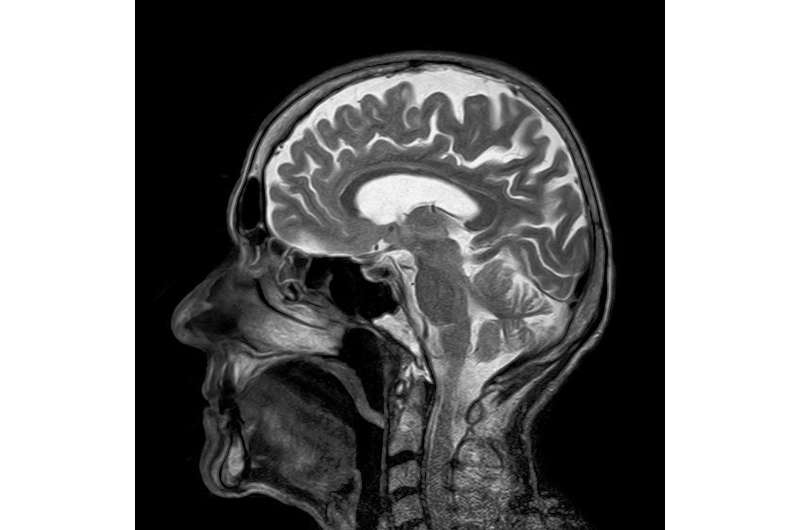Portable MRI can detect brain abnormalities at bedside

A new portable MRI device detected specific brain abnormalities in 29 of 30 patients taken to Yale New Haven Hospital's neuroscience intensive care unit after presenting with symptoms of stroke and other neurological disorders, according to a new study published Sept. 8 in the journal JAMA Neurology.
The research is the first known attempt to deploy a mobile, bedside, magnetic resonance brain-imaging device, which promises to provide immediate diagnosis to doctors in virtually any setting with a standard electrical supply.
"Brain-imaging is key to acute care neurology and is a critical determinant of making the correct diagnosis and identifying the optimal treatment option," said Yale's Kevin Sheth, professor of neurology and neurosurgery and co-corresponding author of the new study.
Using the portable MRI device, researchers from Yale found evidence of ischemic stroke, hemorrhagic stroke, subarachnoid hemorrhage, traumatic brain injury, and brain tumors in patients presenting with neurological symptoms at Yale New Haven Hospital.
The Yale team also used the portable MRI device to analyze 20 patients with severe COVID-19 symptoms. Many of these patients were too sick to be moved to an MRI suite for a neurological diagnosis. (Eight had neurological abnormalities.)
The new device was developed in a collaboration between Yale scientists and Hyperfine, a Guilford-based medical device company founded by Yale alumnus Jonathan Rothberg '91 Ph.D. Clinicians operating in areas outside of major metropolitan areas need rapid diagnostic imaging results especially in cases of stroke, which requires immediate treatment to prevent death or poor outcomes for patients. For instance, the portable device could be used by doctors in poor countries, rural areas, or even in ambulances to differentiate between stroke symptoms caused by a brain bleed or blood clot. This information is crucial in determining the course of treatment, Sheth said.
The cost of the portable MRI device is expected to be a fraction of traditional MRI machines, which use extremely strong magnets and can only be used in specially designed rooms.
"The fundamental thing is that when you have strong magnet it has to be used in a secure bunker," Sheth said. "But a weak magnet you can take anywhere safely."
Hyperfine received approval from the U.S. Food and Drug Administration for use of its prototype device and has requested permission to use a more advanced version of the device.
More information: Kevin N. Sheth et al. Assessment of Brain Injury Using Portable, Low-Field Magnetic Resonance Imaging at the Bedside of Critically Ill Patients, JAMA Neurology (2020). DOI: 10.1001/jamaneurol.2020.3263

















